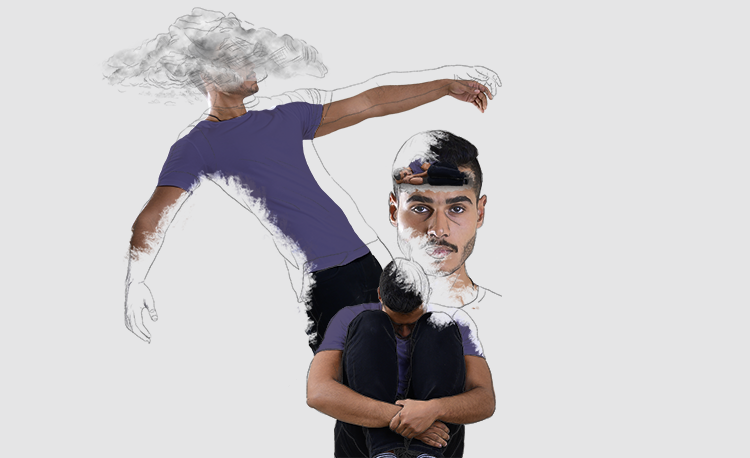Let’s Start a Conversation on Mental Health.
Mental illness scares us because it is an abstract disease of the mind that is not readily proven to exist unlike physical ailment. We fear what we do not know. To cope with that, it becomes easy to go into denial, or make assumptions about it and avoid people suffering from mental illness. Being unaware of proven facts about mental illness further entangles an already complex situation.
Mental illness has a grand halo of stigma surrounding it, a mark of disgrace associated with a particular circumstance, quality, or person. Sadly, it is considered a disgrace to suffer from mental illness in our society, and that is an added burden for all involved. Like any disease, there is an underlying causative biological imbalance in mental illness; it’s not a choice. It most certainly is something that needs to be addressed.
According to an article published in the World Psychiatry Journal in 2002 titled “Understanding the Impact of Stigma on People with Mental Illness,” stigma can be divided into public stigma (also known as social stigma) and self-stigma. Public stigma is the general population’s (including family and friends) reaction to people suffering from mental illnesses. Self-stigma is the prejudice people with mental illness have against themselves. 
Both kinds of stigma include three elements: stereotypes, prejudice, and discrimination. Stereotypes are perceived negative beliefs, prejudice is an agreement with stereotypes or the development of an emotional reaction (e.g. fear or anger) to them, and discrimination is acting on or responding behaviorally to prejudice.
Common stereotypes held about mental illness in our society include attributing mental illnesses to having weak faith or a weak personality.
Other false beliefs about mental illness revolve around the notion that they are always chronic and all medications used for treatment cause dependence. Discrimination may take the form of withholding help, avoidance, coercive treatment, and segregated institutions, along with physical. emotional, or verbal abuse.
Stigma in all its forms has significant and deleterious effects on people with mental illness. It delays the acknowledgement and acceptance of the disease process, delays medical attention, and augments feelings of guilt and shame where self-esteem suffers. The incidence of suicidal ideation, suicidal attempts, substance abuse, and self-medicating practices may increase as well. Eventually, overall outcomes and quality of life significantly diminishes. It’s really time to stop the stigma and start a conversation that offers tangible solutions, and cultivates a culture of understanding.
Signs of possibly having a mental illness include but are not limited to a drastic shift from a person’s baseline attitude, actions, or mood. For those who feel like they may be suffering from a mental disorder, get help. Don’t allow the fear of being labeled hold you back. The faster you are diagnosed, the sooner you embark on a journey towards recovery. There’s absolutely nothing wrong with having a mental illness – don’t fall victim to denial, embrace yourself in its entirety. 
You are not weak, and you don’t need to suffer for long and in silence. Surround yourself with supportive family members and friends you trust. Open up and avert from isolation. Book an appointment with a psychiatrist and explore the various available treatment options.Equip yourself with knowledge about your diagnosis; remember that it doesn’t condemn nor define you. No matter how dark or hopeless the situation may be, never give up on yourself. It will get better.
To everyone else who surrounds those suffering from mental illness (caregivers, family members, friends, employers, colleagues), be part of the change today. Telling people with mental illness to “stop whining” or dismissing the disease altogether sends out a dangerous message despite it coming from a good place. Abstain from such comments, belittling others’ suffering, and being judgemental. Educate yourself on the matter to have a better understanding, and to become active advocates.
For more information on specific disorders, here are some places in the Kingdom to seek medical attention from:
ACT Adult & Child Therapy Center:
A multidisciplinary mental health care private practice. They provide a wide range of services including adult and child psychotherapy, child and adult psychotherapy, coaching, marriage counseling, play and art therapy and more. They also offer regular seminars and workshops.
Location: 233, Mohamed Bin Abdulaziz St. Al Andalous District, Jeddah
Instagram: actcenter
Medicare Clinics:
Established in 1998, these clinics provide home visit services for those unable to attend the clinic, run Wechsler IQ tests and the Minnesota Multiphasic Personality Inventory that assesses personality traits and psychopathology, and provide group therapy along with other services.
Location: Al Madhar Ash Shamali, Takhassusi Street, Al Mathar Ash Shamali, Riyadh
Instagram: medicareclinics
Dr. Ali Alsalamah Medical Center:
A center that specializes in psychiatry, psychology, sociology, guidance and rehabilitation for Autism and ADHD patients.
Location: Street 28, Alanoud district, Dammam
Instagram: ajaberalsalamah










